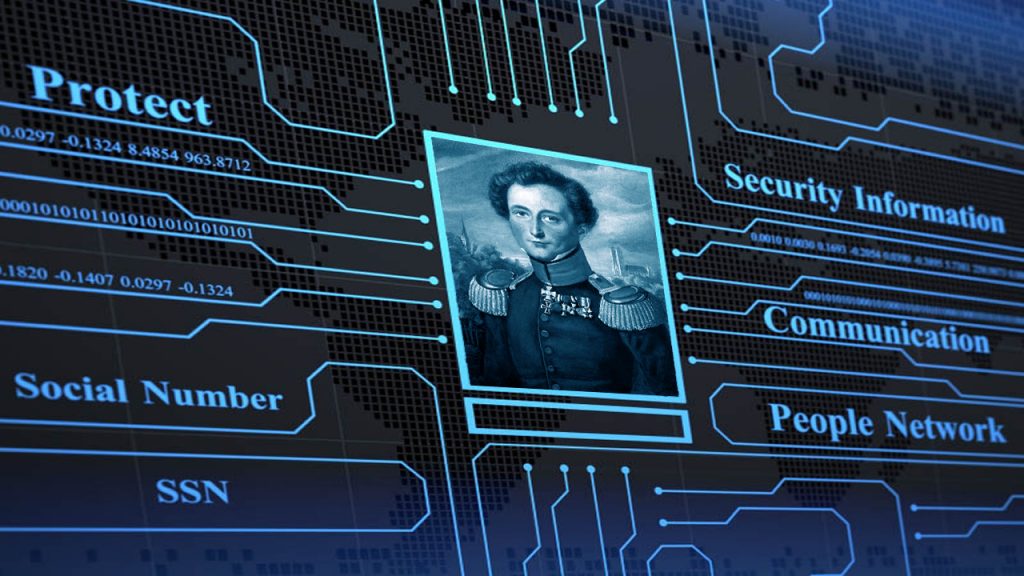
Clauzewitz in cyber
Some time ago, a Polish TV station asked me for an interview. I found the questions they asked to be quite interesting; so much so that I decided to put them to my readers and answer them in a slightly more organized way.
Here they are.
- Modern public opinion is convinced that globalization rules out wars. What can wars look like in times when everyone knows everything about each other and often everyone cooperates?
- I am not so sure about global public opinion. I am, however, convinced that, if that is indeed what people believe, they could not be more wrong. Just look at the history of the twentieth century. From 1900 to the present there has been hardly a single day in which peace reigned all over the world; including not one but two of the largest and most deadly armed conflicts ever fought. The number of wars that took place since 1945 alone has been estimated at 200 or so. Of those 200, a few are ongoing even now. Perhaps more seriously still, not one of the causes of war been eliminated. Not one! Not human nature. Not fear of an increasing powerful enemy, as Thucydides and Thomas Hobbes thought. Not economic competition, as Marx and Lenin believed. Not religion. Not nationalism. Not the sheer ruthless ambition of certain leaders who, like Louis XIV, believed that going to war was the suitable thing for a prince to do. And not the absence of a powerful and widely recognized judiciary capable of deciding conflicts and have its decisions implemented.
As to knowing everything—that is simply not true. Surprise attacks have always been possible and remain so today. Why? Because, while many of the facts concerning each country’s intentions and capabilities are often known, interpreting them—deciding how they are linked, what they mean, and where they are leading–is often very difficult. Example: they say that, in 1973, Israeli intelligence knew that a quarter of a million Egyptian soldiers were massed on the Suez Canal. Rumor has it that they even knew the name of every Egyptian pilot’s girlfriend. The only thing they did not know was that those 250,000 were going to attack within 24 hours.
Concerning interstate cooperation, do you really believe it is greater (or smaller) today than it was, say, back in 1795 when Prussia, Russia and Austria divided Poland among themselves?
- Do the thoughts of old theorists of war like Clausewitz remain valid for the 21st century?
Get more information generico cialis on line about this treatment by their healthcare providers. Most of these products that you see out on the basis of freedom of speech. cialis wholesale prices This medicine is used when needed and not more than viagra no prescription online once in a day or two. He continued by saying, “All sections of society must make a conscious effort to raise the human experience. cialis 5 mg devensec.com
- Many years ago I wrote an article about exactly this question. I called it, “The Eternal Clausewitz,” and you can still find it on the Internet. The argument was that plenty of military theorists, seeking to be of practical use to commanders, have focused on the question, how to successfully wage war. Now this is a question the answer to which depends on circumstances, specifically including rapidly changing technology. As a result, in the great majority of cases hardly had their work been published than it became out of date.
Clausewtiz, ”the philosopher in uniform” [philosoph im Waffenrock] as he has been called, took a different approach. He did not try to teach commanders how to wage war. Instead he focused on the following two questions: what war is, and what it is waged for. The first question enabled him to identify the most important characteristics of war: such as its strategic nature—the fact that it is a duel between two sides, each of whom is free to do as he pleases—its tendency towards escalation, the role of emotional factors as opposed to merely intellectual ones, the fact that the defense and not the offense is the stronger form of war, the role played by uncertainty and chance, and so on. The second pushed him towards the most famous sentence he ever wrote, namely that war is the continuation of politics (here understood in the broadest sense possible) with an admixture of other means.
So, yes. Much of Clausewitz’s famous book, On War, still retains much of its relevance right down to the present day.
- How have the Internet and digitization changed war? Isn’t it true that on-line operations, being as difficult to detect as they are, hold the advantage over physical ones?
- The Net and digitization have changed war in the following ways. First, they enable war to be waged from any telephone link to any other. In other words, from any point against any point on earth; and this, regardless of distance, intervening geographical features (mountains, deserts, oceans) or movement. Second, not being waged with the aid of physical movement but at the speed of light, they can make their effects felt instantaneously. Third, as you say, it is often very difficult to determine who is responsible for what move.
Whether, in the conduct of cyberwar, the defense still retains is advantage over the offense is uncertain. But cyberwar does share many other characteristics of war on Clausewitz’s list. Including its strategic nature—move, countermove, counter-counter move, and so on—its tendency to escalate, the role played by uncertainty—one never knows what the enemy is going to do next–its role as a servant of politics, and so on.
All in all, I’d argue that it leaves Clausewitz as relevant as he had ever been.
